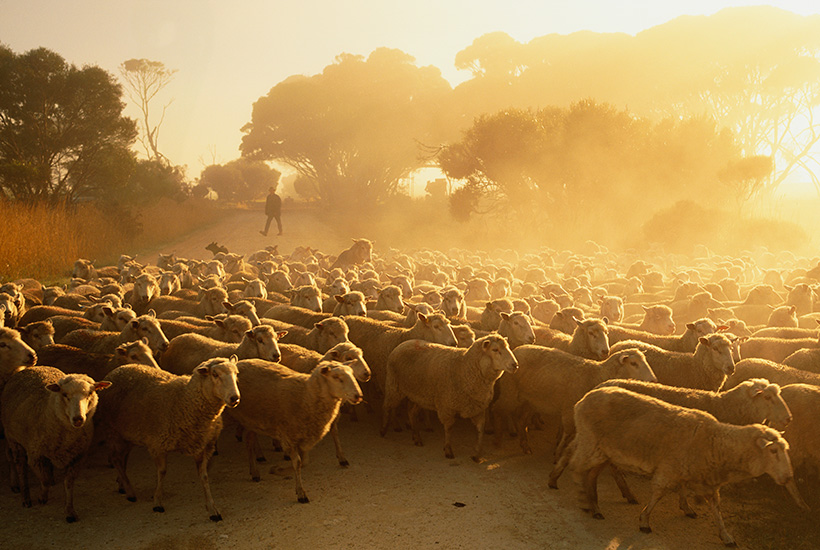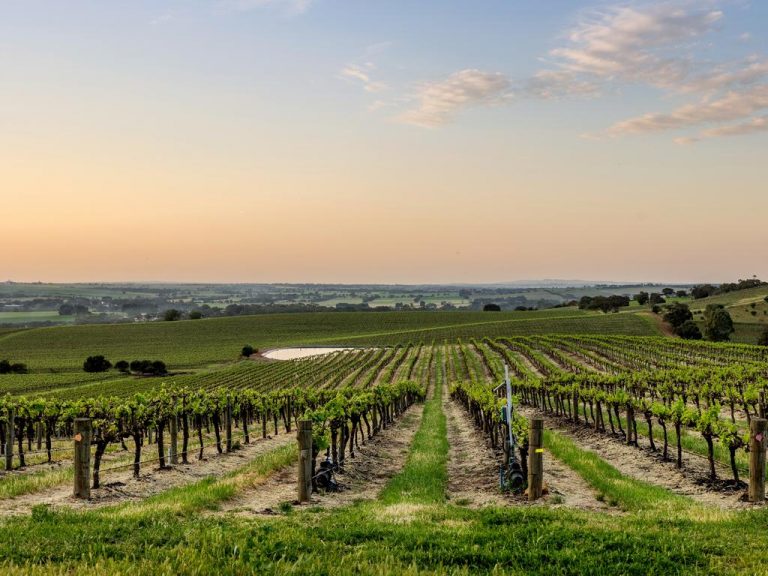Can I buy a farm with no money?

The short answer to this question is no, you can’t!
Maximum experience and plenty of cash flow are crucial to keeping an income-producing farm alive and well.
But there are grants, loans and subsidies available to assist rural property owners, along with compromises such as share farming.
Rural financial experts explain.
How much does it cost to buy a farm?
Lifestyle farm blocks, usually 50ha and under in size, can range from $500,000 to $1.5 billion, depending on their location, according to Elders’ Brisbane agri-finance manager, John McMahon.
“Under 50ha is the number a lot of banks work from,” he said.
“It’s classed as lifestyle so it’s not an income-producing property.”
However, even for these small farms, rural farmers will need 50%-60% of equity, explained Rob Cavallaro of Nutrien Harcourts.
The sales manager in Griffith, NSW – otherwise known as Australia’s food bowl for its mixed-farming properties of fruit, vegetables, cotton, wheat, rice and further afield, dryland farming – said the irrigated Riverina country had become increasingly valuable over the past decade.

If you own a farm with permanent plantings, such as grapes or oranges, factor in the cost of buying water separately. Picture: Getty
“Everything here is booming because we provide food to the world – it’s not like it used to be,” Mr Cavallaro said.
“Gone are the days where you’d have plenty of single farmer units.
“The farms around here are now being scooped up by corporate buyers.
“We’re talking thousands of dollars an acre for land that was once only worth $10 an acre.”
Mr Cavallaro said even hobby farm purchases would still need 40%-50% equity for lenders to fund it.
“As an example, a 22-acre farm which had nothing on it other than a shed and water recently sold for $550,000,” he said.
“The buyers needed to have 60% of equity and yet this farm is a lifestyle place and you wouldn’t make money out of it.
“So in this way, farms are not something you can just come in and buy with very little funding.”
Mr Cavallaro added that land with permanent plantings, such as grapes or oranges, would need to factor in the cost of buying water separately, which could be very expensive.
How can I buy a farm?
Before you even approach a lender, think about what kind of property you’re going to buy and its location, Mr McMahon explained.
1. Personal experience and property details
“Even with Mum and Dad as your guarantor, you’ve still got to go through the lending criteria, which will focus on your background, your management skills and how you operate a business,” he said.
“Part of your management experience will be your marketing skills, your ability to make decisions, who you’ve got around you such as accountants and agents, and who you can ask questions from.
“The next thing lenders will look at is the property: is it fenced, what’s your loss factor, where are your water points, and what are your soil types?”
2. Business plan
Your next step will be organising a business plan, ensuring you include exact details on how you’ll make your farm work both now and throughout the duration of the loan, Mr Cavallaro explained.
“A bank won’t lend anyone any money unless they have a business plan,” he said.
“So, how are you going to make your property work financially – without having access to surplus funds – including irrigating, fertilising and buying the machinery acquired for the farm itself as well as paying for any employment?”
3. Financial position
Organising your financial position is a big step, Mr McMahon said.
“Organise your financial cash flows with tables and stock numbers so you can show the bank how you’ll service your debt,” he explained.
Mr Cavallaro added that farm buyers should always keep in mind the volatility of the industry and as a result, the caution of lenders when financing such properties.
“You could have a really good year but then you could have four or five bad years,” he said.
“As well as running a business, you’re also affected by the climate, other outside influences and things that you’ve got no control over.”

Include the costs of irrigating, fertilising and buying machinery in your farm’s business plan. Picture: Getty
Can I get financial help to own a farm?
Yes, you can, with the federal government-backed Regional Investment Corporation (RIC) offering financial assistance for farmers and farm-related small businesses.
Established through the Regional Investment Corporation Act in 2018, loans of up to $2 million are available for first-time farmers; those trying to manage, or recover from, drought; and most recently, for those who decide to create new plantations or replant after bushfires.
Some state governments also offer farming financial assistance such as NSW’s Rural Assistance Authority’s loans, grants, rebates and subsidies for primary producers and small business operators.

Federal government assistance of up to $2 million is available for farmers trying to recover from, or manage through, drought. Picture: Getty
“If you’re going to ask for this help, I’d recommend finding a good accountant and solicitor from an independent legal service,” Mr McMahon said.
Mr Cavallaro added that there were also facilities in place wherein farmers doing it tough can utilise funds put aside in good years.
“In bumper years, farmers can put money into a separate fund and they don’t pay tax on it,” he said.
“If they do access it during bad years, then they pay tax on it.”
“This allows farmers to continue farming long term, especially your dry area guys.”
What are my other financial farm options?
If you’re struggling to make farming work for you, especially financially, share farming or profit farming can be a good compromise, Mr Cavallaro said.
This option sees two farmers share the burdens, risks, profits and possibilities of rural living while still operating separate commercial businesses.
“A lot of people that go into farming actually start share farming instead,” Mr Cavallaro explained.
“There are different levels of share farming with some people using other people’s land and farming it over time.”
Whichever way you decide to start a life of farming, Mr McMahon warns that it isn’t a lifestyle for small-time dabblers.
“You’ve got to know your cattle or stock, be able to handle pressure and to handle the word ‘no’,” he said.
“While banks and lenders are going to look at your funds, your success depends on your abilities and not your dreams.”







